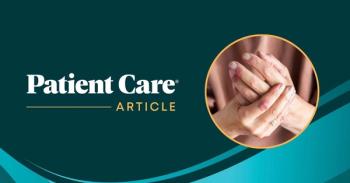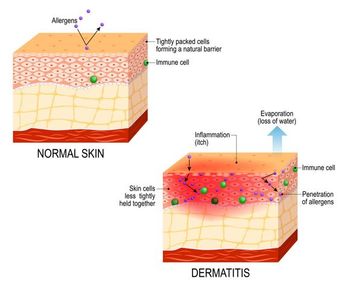
RSVPreF Reduces Risk of Severe RSV in Older, High-Risk Adults in Large Real-World Study
The new research augments data on efficacy of RSVPreF in older, high-risk adults that was not captured in phase 3 pivotal clinical trials, authors said.
During the 2023-2024 respiratory virus season, the Respiratory Syncytial Virus Prefusion F (RSVPreF) vaccine demonstrated adjusted vaccine efficacy (VE) of 91% against respiratory syncytial virus- (RSV) related lower respiratory tract infection (LRTI) requiring hospitalization or ED visit among adults aged 60 years or older, according to new research published in JAMA Network Open/Infectious Diseases. Those findings were observed in the first 5 months of vaccine use.
More specifically, the vaccine demonstrated 82.6% efficacy (95% CI, 57.9%-94.1%) against RSV-associated LRTI with 2 or more symptoms and confirmed RSV infection. Against severe RSV-associated LRTI, characterized by 3 or more symptoms, VE was 94.1% (95% CI, 61.5%-99.4%). Additionally, the vaccine was 93.8% effective (95% CI, 68.3%-99.3%) in preventing RSV-related hospitalizations.
According to first author Sara Y Tartof, PhD, MPH, assistant professor of health systems science at the Kaiser Permanente Bernard J Tyson School of Medicine, in Pasadena, CA, and colleagues, RSFPreF efficacy was consistent across demographic and clinical subgroups, including individuals with preexisting comorbidities such as chronic obstructive pulmonary disease (COPD), asthma, and cardiovascular disease. Efficacy was slightly higher among adults aged 60 to 69 years (85.7%) compared to those aged 70 years or older (79.4%).
The RSVPreF vaccine was associated with robust VE against RSV-related LRTD in clinical trials, however the studies enrolled a relatively small proportion of persons aged 75 years or older and those with comorbidities than are routinely seen in the populations at highest risk in real-world clinical settings, wrote Tartof and team. Prior to their research, they add, data on VE against hospitalizations and ED visits associated with RSV were sparse.
The public health benefit of vaccination against RSV in this population should not be ignored, they noted. Based on their findings and data on RSV incidence, they estimated that for "approximately every 250 persons vaccinated, 1 RSV-related ED or hospitalization encounter could be prevented in the first season after vaccination, providing an opportunity to reduce severe medically attended RSV disease burden.”
To begin building the body of evidence in support of increased vaccination efforts in the high-risk groups omitted from registration trials, Tartof and colleagues launched a retrospective case control study using a test-negative design in a large real-world setting. The team evaluated RSVPreF effectiveness against a first occurrence of RSV-related LRTD inpatient or ED visit compared the odds of RSVPreF3 receipt between RSV cases and test-negative controls at Kaiser Permanente Southern California including data from adults aged 60 years or older. Study inclusion required an ICD-10 code consistent with LRTD in any position for a hospitalization or ED encounter based on molecular testing for RSV from November 24, 2023, to April 9, 2024. Individuals were excluded if they had received a non-RSVPreF3 vaccine or had been vaccinated against RSV fewer than 21 days before identification of LRTD. Data were analyzed from May to September 2024.
Additional Findings
During the study period, 10 566 adults meeting the study age requirement were hospitalized for LRTD or had ED encounters at study sites. After applying eligibility criteria, the final analysis included data on 7047 LRTD events with tested specimens. Mean age of the final cohort was 76.8 years and 54.2% were women; in terms of race and ethnicity, 11.9% were non-Hispanic Asian or Pacific Islander, 33.0% were Hispanic, 17.0% were non-Hispanic Black, and 36.9% were non-Hispanic White.
Approximately 1 in 10 (14.2%) were classified as having immunocompromising conditions. Notably, Tartof and colleagues reported that the majority of the population had comorbidities (93.9%), and more than half (57.4%) were aged 75 years or older.
Tartof and colleagues state that the findings from their general population evaluation greatly expand on clinical trial data, with VE documented against more severe outcomes and among an older population with greater vulnerability to severe disease.
“Indeed, in light of the 2024 Advisory Committee on Immunization Practices update to use of RSV vaccines, (ref) which now recommends their use for all adults aged 75 years and older, and for adults aged 60 to 74 years at increased risk of severe RSV, our results are particularly relevant as they address data gaps for groups called out in this guidance,” the investigators concluded.
References
1. Tartof SY, Aliabadi N, Goodwin G, et al. Estimated vaccine effectiveness for respiratory syncytial virus-related lower respiratory tract disease. JAMA Netw Open. 2024;7(12):e2450832. doi:10.1001/jamanetworkopen.2024.50832
2. Melgar M, Britton A, Roper LE, et al. Use of respiratory syncytial virus vaccines in older adults: recommendations of the Advisory Committee on Immunization Practices - United States, 2023. MMWR Morb Mortal Wkly Rep. 2023;72(29):793-801. doi:10.15585/mmwr.mm7229a4
Newsletter
Enhance your clinical practice with the Patient Care newsletter, offering the latest evidence-based guidelines, diagnostic insights, and treatment strategies for primary care physicians.
































































































































